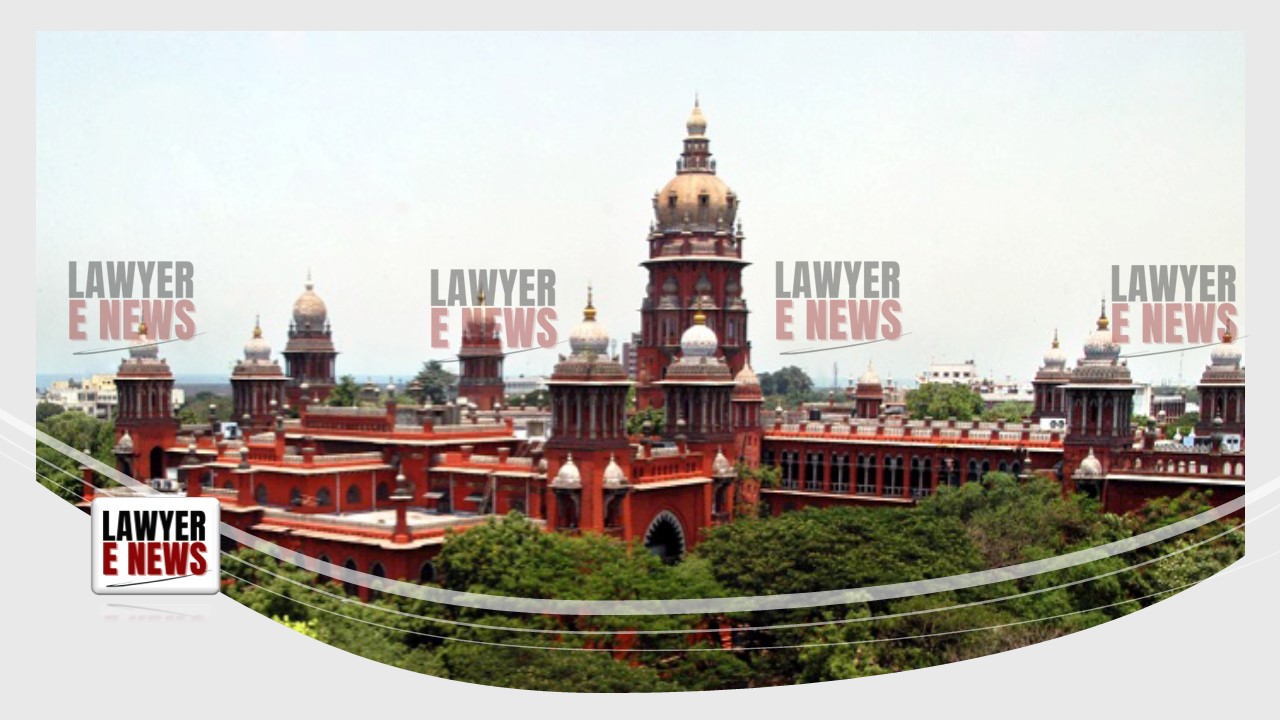-
by Admin
18 February 2026 3:03 AM



UGC Regulations 2018 Cannot Override Article 30(1) Rights of Minority Institutions - Madras High Court quashed the refusal orders of the University of Madras and Annamalai University denying qualification approvals for 66 Assistant Professors and a Principal appointed by minority institutions. The Court held that the constitutionally protected rights under Article 30(1) cannot be abridged by imposing the UGC Regulations, 2018 or the corresponding G.O.Ms.No.5 dated 11.01.2021 on minority institutions.
Justice N. Anand Venkatesh decisively ruled that: “The UGC Regulations, 2018 will not apply to the minority institutions, as they directly infringe upon the fundamental right guaranteed under Article 30(1) of the Constitution of India.”
Several prominent minority institutions — Women's Christian College, Madras Christian College, Loyola College, Stella Maris College, and Sacred Heart College — challenged the orders of the University of Madras and Annamalai University refusing to grant qualification approval to their faculty appointments. The denial was based on the contention that the appointments were not made following the selection procedure mandated by UGC Regulations, 2018, adopted by the State Government through G.O.Ms.No.5 dated 11.01.2021.
The institutions contended that such regulatory interference in their selection process violated their fundamental right under Article 30(1) of the Constitution to establish and administer educational institutions of their choice.
The central question was whether the UGC Regulations, 2018 and the State's adoption of the same could dictate the constitution of the Selection Committee for appointment of teachers and principals in minority educational institutions, thereby restricting their right to administer.
The Court framed the issue as: “Whether both the UGC Regulations, 2018 as well as G.O.Ms.No.5 dated 11.01.2021 infringe upon the fundamental right guaranteed under Article 30(1) of the Constitution of India?”
Justice N. Anand Venkatesh, after a detailed comparative analysis of UGC Regulations of 2000, 2010, and 2018, observed: “There is no marked change in the constitution of the Selection Committee for Assistant Professors under the 2018 Regulations compared to 2010. However, the 2018 Regulations for the selection of Principals introduce a more stringent process with an overwhelming presence of outsiders, infringing upon the autonomy of minority institutions.”
The Court emphasized: “The right to administer has been given to the minority so that it can mould the institution as it thinks fit and in accordance with its ideals... Even though Article 30(1) is styled as a right, it is more in the nature of protection for minorities.”
Relying on Forum of Minority Institutions and Associations v. State of Tamil Nadu, (2011) 1 CTC 162, the Court reaffirmed that: “Any regulation interfering with the selection of staff in minority institutions is violative of Article 30(1) and is, therefore, inapplicable.”
The UGC, through the Additional Solicitor General, argued that the 2018 Regulations apply uniformly to all institutions, including minority institutions, and aim to maintain educational standards without impinging on Article 30(1) rights.
However, the Court rejected this submission: “The relevant UGC Regulations involving the selection to the posts of Assistant Professor and Principal, when applied to minority institutions, directly interfere with the overall administrative control by the management, which dilutes/abridges the right to establish and administer educational institutions.”
“It is not necessary for the minority institutions to keep challenging every new UGC Regulation when the law has been settled by the Division Bench judgment.”
Holding that the UGC Regulations, 2018 and the Government Order adopting them cannot override the constitutional right under Article 30(1), the Court directed: “The impugned orders of both the universities refusing to grant approval for appointments stand quashed.”
“Both the University of Madras and the Annamalai University shall grant approval to the appointments made by the minority institutions without reference to UGC Regulation 5.1(V) and VIII(A) of the UGC Regulations, 2018 and G.O.Ms.No.5 dated 11.01.2021, subject to other qualifications being satisfied.”
The Court further ordered: “On such approval being granted, the respective candidates will be entitled to fixation of salary applicable to the respective posts and arrears of salary from the date of their appointment.”
This judgment is a robust reiteration of the constitutional guarantee under Article 30(1) protecting the administrative autonomy of minority educational institutions. The Madras High Court has reaffirmed that regulatory measures aimed at educational standards cannot override fundamental rights, unless expressly permitted under constitutional limitations.
“The Judiciary must recognize its pivotal role in restoring confidence among minorities, acting as a guardian of the rights that were pledged to them, thus reinforcing the very essence of India's democratic ethos and its dedication to unity in diversity.” — Justice N. Anand Venkatesh
Date of Decision: 27 March 2025
